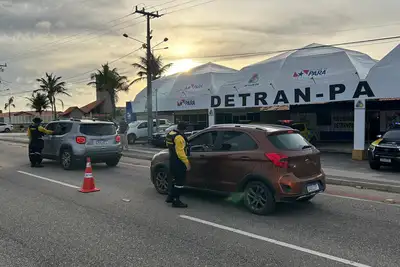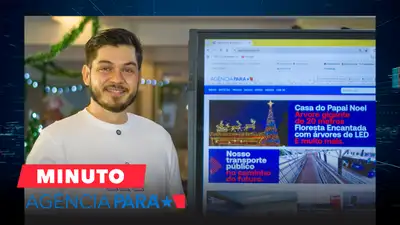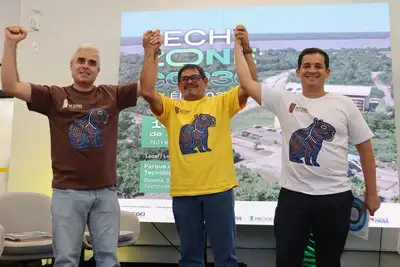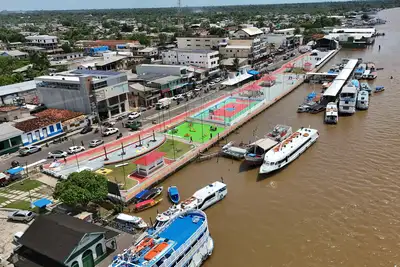Helder Barbalho presents Pará's vision for the global bioeconomy at TEDx Amazônia in Belém
The governor highlighted environmental advances, restoration goals, and Belém's preparation for COP30 during a special session at the TED Countdown House
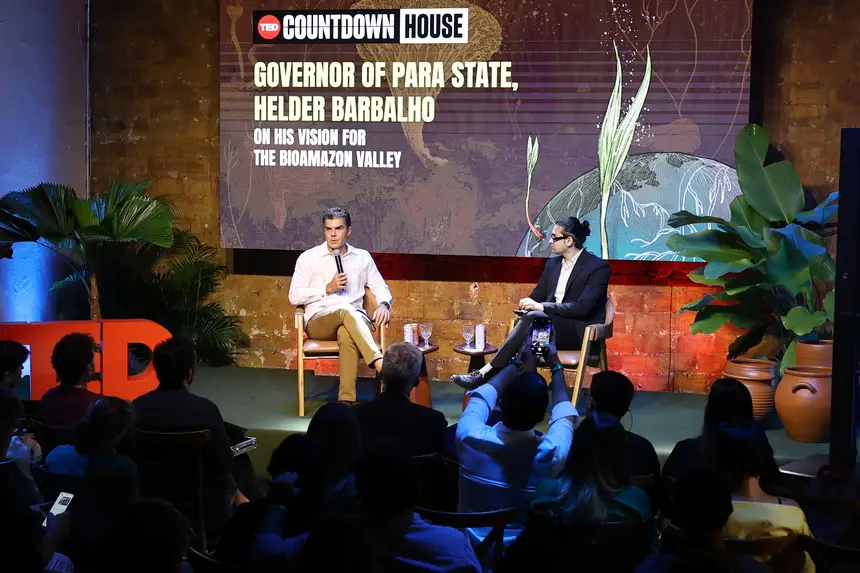
The governor of Pará, Helder Barbalho, presented this Friday (14), at TEDx Amazônia in Belém, the strategic vision of the State for the construction of the Bioamazon Valley, an ecosystem of bioeconomy, innovation, and sustainable development based on Amazonian biodiversity. The special session at the TED Countdown House was led by journalist Akshat Rathi, senior reporter for Bloomberg News.
While explaining the concept of the Bioamazon Valley, Helder Barbalho emphasized that the initiative integrates essential agendas for the future of the Amazon and the planet.
“The environmental legacy has brought to the same table the agricultural agenda, sustainable economy, funding to preserve the forest, the bioeconomy of biodiversity, the carbon market, and environmental services,” he stated.
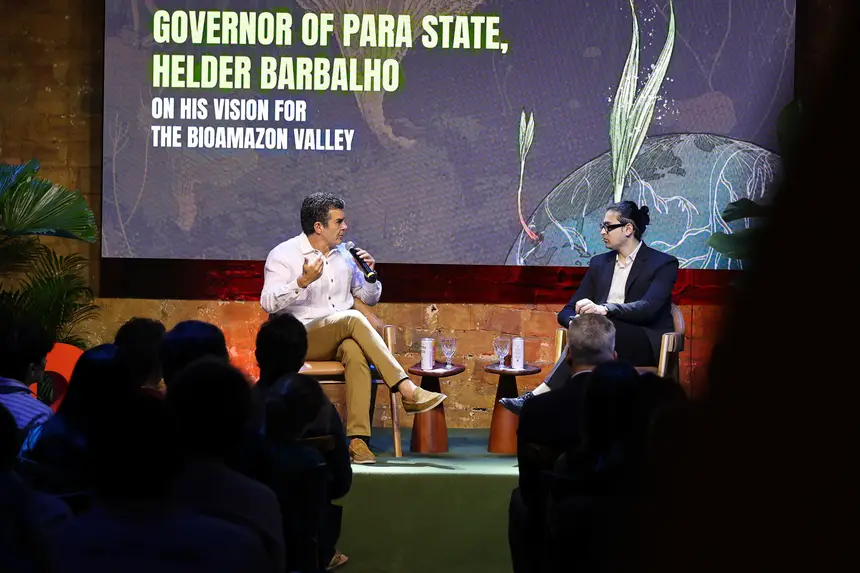
The governor emphasized that Pará is experiencing "a new story," based on the transition to a standing forest economy and rigorous combat against illegal land use. “Seven years ago, we chose new paths for Pará, a new story. We need to create a new culture in which we use the forest and the land to build a new economy,” he reinforced.
Environmental advances, oversight, and climate policies
During the conversation, Helder presented environmental and economic results achieved by the State, highlighting the historic reduction of deforestation and the strengthening of oversight, territorial planning, and climate policies, such as the Amazon Now Plan, the State Policy on Climate Change, and the Bioeconomy Plan.
He also emphasized pioneering large-scale restoration initiatives, such as the first Brazilian public concession for reforestation, carried out in partnership with the private sector. The project covers about 10,000 hectares and can generate 2,000 green jobs, contributing to the state goal of restoring 5.7 million hectares by 2030.
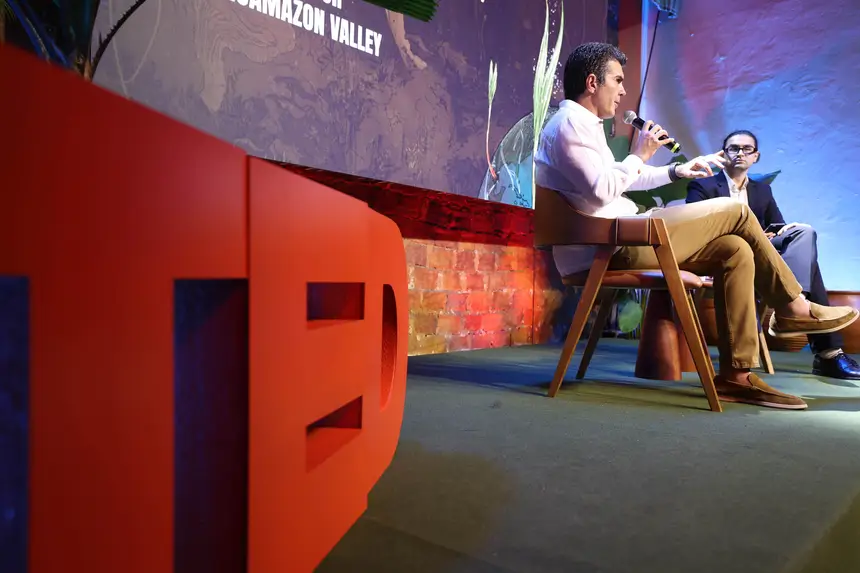
“We transformed a public area under strong pressure into an example of forest concession for reforestation. In 40 years of concession, there will be many green jobs and a model for Brazil,” he explained.
Cattle traceability and valuing good practices
Another central point of the interview was the implementation of the individual traceability system for cattle. With 26 million head of cattle, Pará is advancing to ensure production is decoupled from deforestation.
“It is not possible to only charge producers. We need the industry to pay for good practices, for integrated and environmentally correct agricultural practices,” the governor highlighted.
Preparations for COP30 and urban legacy for Belém
In response to audience questions, Helder Barbalho presented the advances in preparing Belém to host the 30th United Nations Climate Change Conference (COP30) in November 2025. He explained that the planning prioritizes structural investments, especially in peripheral areas, with the reconstruction of streets, requalification of channels, renewal of the fleet of air-conditioned buses, and connectivity with Wi-Fi.
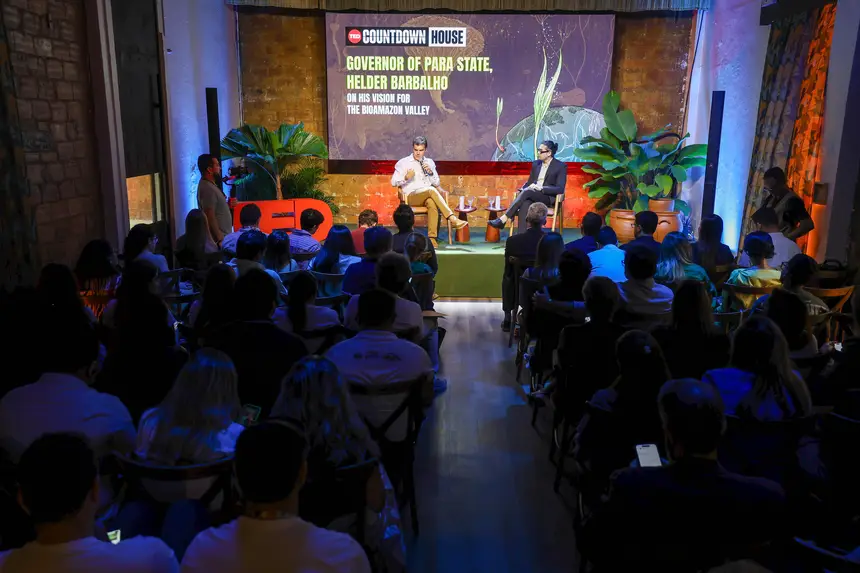
“It is not possible to create a city of excellence only in the center; the legacy needs to reach the entire population,” he stated.
“I am proud to place Belém in the same position as cities like Madrid, Dubai, Baku, and Glasgow. We have similar problems to other major urban areas in the world, but now we show that the Amazon can be a reference in solutions.”
Mandatory environmental education and building a new culture
Helder reminded that Pará is the first Brazilian state to include mandatory environmental education in the official curriculum, an initiative he considers essential to transform behaviors and consolidate a new environmental culture. “Schools are a unique opportunity to create this awareness. [...] Only education can guarantee a new culture regarding the environmental crisis,” he noted.
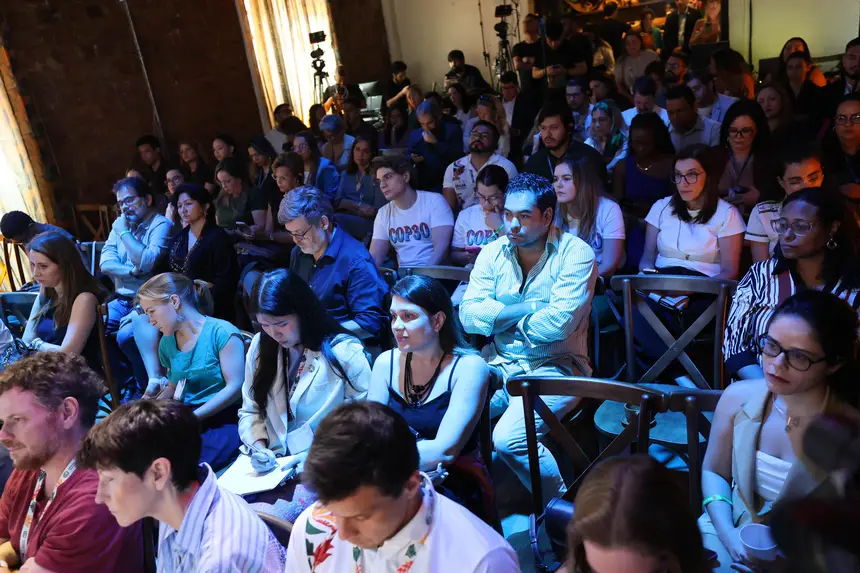
In closing his participation, the governor emphasized that the ongoing environmental and economic agenda is permanent and represents a commitment from the State itself. “It is a State agenda, and the Pará society has already understood its importance. The ecological transition is irreversible,” he concluded.






